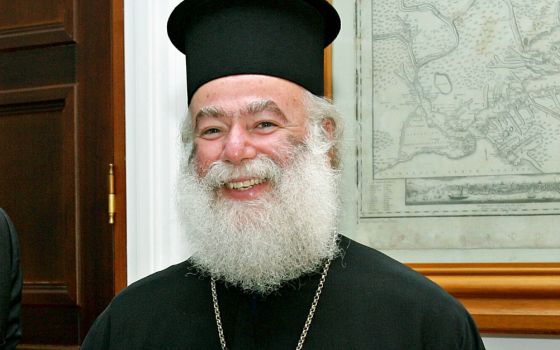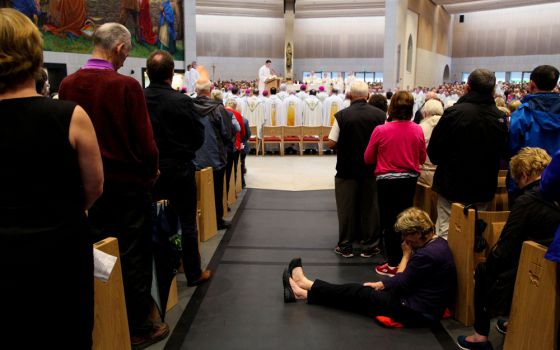Pope Francis took an unexpected but important step when he announced that "it seems useful to me to have a commission that would clarify" the issue of ordaining women to the diaconate.
The May 12 announcement came in answer to questions during a meeting between the pope and 900 leaders of the world's congregations of women religious.
Anyone mildly acquainted with how the church works understands that it thinks in terms of millennia, and change comes in incremental steps, sometimes increments so small as to be indiscernible in the span of an individual life. In this sense, Francis' proposed commission is a leap forward. A study, however, is just a study, and the effort will surely be far more complicated than it sounds.
Expectations notwithstanding, it is essential to understand the two realities at work:
- The Catholic church will remain severely deficient in important areas and increasingly lacking in credibility until, as Mercy Sr. Theresa Kane pleaded with Pope John Paul II in 1979, the church becomes open to "the possibility of women as persons being included in all ministries." The pressure is building steadily behind the wall of churchmen's denial. The absurdity of claiming universality while simultaneously excluding women from those quarters where the most important decisions are made can no longer take refuge behind archaic theological and anthropological sentiments.
- Control of the Catholic church remains in the hands of a miniscule portion of the community, and that portion is exclusively male and almost entirely celibate (a few married priests do exist). The church's ecclesiology, its structures, its rituals, its canons, its teachings, its interpretation of Scripture, its understanding of God -- all are issued from an exclusively male, celibate culture. Most Catholics, then, live the ecclesial dreams of 2,000 years of men, even down to how the church "understands" women.
Somewhere between those poles, we now have a bit of a jolt, this idea that the church will study the possibility of women deacons.
In the near term, in the context of the past 35 years or so, the proposal is momentous and could change life in the church enormously as we know it. After all, in recent decades Catholics were commanded to not think about such things, a decree laughable on its face if it weren't inherently inhuman. And humans couldn't put the thought or the question out of mind.
In the long haul of church history, the suggestion that women might be ordained deacons is a small consolation only if it is a step on the way to much greater inclusion in the fullness of church ministry.
The success of Francis' proposed commission will depend greatly on two points: who is appointed to the commission and how transparent the process is.
A deep, rich and vibrant academic study of the diaconate and women in the diaconate already exists. The Vatican commission must allow a wide range of thinking on this issue, but just as importantly, it must include scholars who are already deeply immersed in the academic discussion, and it must have a substantial number of women as members.
Just days before Francis talked about deacons, the University of St. Michael's College in the University of Toronto, one of the most respected theology programs in North America, sponsored the symposium "Women, the Diaconate, and the Future of Ministry." Each panel and presentation featured noted experts on church history, Scripture and pastoral theology. Any of the speakers at that conference could serve well on a Vatican commission studying the issue.
A commission that does not include noted experts -- like those in Toronto, but there are others -- would struggle to establish credibility. NCR, of course, would endorse Phyllis Zagano, our longtime contributor and foremost authority on women deacons, for membership.
As important as the membership of the commission is the process it adopts for its work. The process must be public and transparent; there can be no closed-door sessions and confidential reports. This commission would be a perfect exercise in the synodal church structures that Francis is trying to foster.

